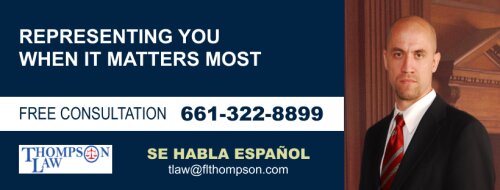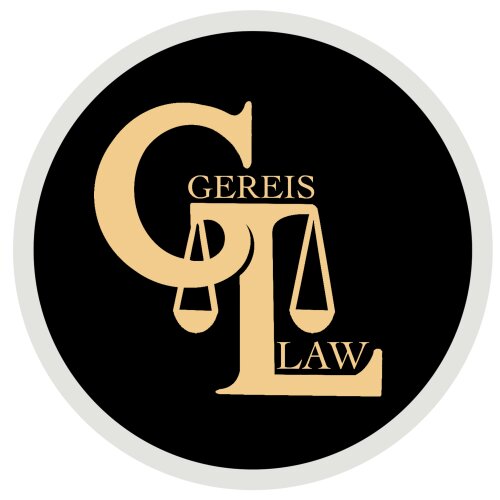Best DUI & DWI Lawyers in Vermont
Share your needs with us, get contacted by law firms.
Free. Takes 2 min.
Or refine your search by selecting a city:
List of the best lawyers in Vermont, United States
About DUI & DWI Law in Vermont, United States
Driving under the influence (DUI) and driving while intoxicated (DWI) are serious criminal offenses in Vermont. These laws make it illegal to operate a motor vehicle if your ability to drive is impaired by alcohol, drugs, or a combination of both. Vermont enforces strict penalties for DUI and DWI offenses to promote road safety and reduce accidents caused by impaired drivers. Understanding your rights and responsibilities under Vermont DUI and DWI law is crucial if you are facing charges or have concerns about these issues.
Why You May Need a Lawyer
There are many situations in which legal help is essential for DUI and DWI cases in Vermont. If you have been arrested or charged with DUI or DWI, navigating the legal process can be complicated and overwhelming. A lawyer can help you:
- Understand the charges you face and the possible penalties
- Analyze the evidence, including breath or blood tests
- Identify defenses or procedural errors
- Negotiate possible plea deals or reduced charges
- Represent you in court for hearings and trials
- Protect your driving privileges
- Handle license suspension hearings with the Department of Motor Vehicles (DMV)
- Advise on potential long-term impacts on employment, education, and insurance
Even a first offense DUI in Vermont can have serious consequences, so consulting with a lawyer is highly recommended.
Local Laws Overview
In Vermont, DUI and DWI laws are outlined in Title 23, Section 1201 of the Vermont Statutes. Key aspects include:
- It is unlawful to drive with a blood alcohol concentration (BAC) of 0.08 percent or higher for most drivers. For commercial drivers, the BAC limit is 0.04 percent. For drivers under 21, any detectable BAC (0.02 percent or above) can result in a charge.
- DUI can also mean impairment from drugs, including prescription drugs and cannabis, not just alcohol.
- Refusing to take a breath or blood test can result in immediate license suspension and may be used as evidence against you in court.
- Penalties for first-time offenses may include fines, jail time, license suspension, and mandatory education or treatment programs. Penalties increase with subsequent offenses.
- Vermont allows for ignition interlock devices for some offenders, enabling conditional driving during license suspension periods.
- DUIs remain on your driving record and may affect your insurance and employment.
Frequently Asked Questions
What is the difference between DUI and DWI in Vermont?
In Vermont, DUI (driving under the influence) and DWI (driving while intoxicated) are often used interchangeably. The legal term used in Vermont statutes is DUI, covering impairment by alcohol, drugs, or both.
What are the penalties for a first-time DUI offense in Vermont?
A first-offense DUI in Vermont can result in up to two years in jail, a fine of up to $750, license suspension for 90 days, and mandatory participation in a substance abuse program.
Can I refuse a breath or blood test if I am stopped for suspected DUI?
You can refuse, but Vermont has implied consent laws. Refusal will lead to immediate license suspension and can be used as evidence against you in court.
How long will a DUI stay on my driving record?
A DUI conviction stays on your driving record for life in Vermont. It may impact insurance rates and employment opportunities.
Is it possible to get a limited or hardship license after a DUI?
Vermont allows certain offenders to apply for an ignition interlock device, which can provide limited driving privileges during a license suspension.
What should I do if I am stopped by the police for suspected DUI?
Remain calm and polite, provide your identification and insurance, and know your rights. You may refuse field sobriety tests but refusing chemical tests has consequences. Contact a lawyer as soon as possible.
Can I face DUI charges for prescription or legal drugs?
Yes. Any impairment caused by prescription drugs, over-the-counter medications, or legal substances can lead to a DUI charge in Vermont.
Do I have to tell my employer about my DUI arrest or conviction?
This depends on your employer’s policies and your job. Some positions, especially those requiring driving, may require you to report DUI arrests or convictions.
Will my car insurance rates go up after a DUI in Vermont?
Most likely, yes. A DUI conviction is likely to significantly increase your car insurance premiums and may result in policy cancellation.
Can a DUI charge be reduced or dismissed?
With the help of a lawyer, it may be possible to challenge the evidence, negotiate a plea deal, or seek dismissal, particularly if there were procedural issues or if you have mitigating circumstances.
Additional Resources
- Vermont Department of Motor Vehicles (DMV) - Provides information on license suspension, reinstatement, and ignition interlock devices
- Vermont Judiciary - Offers access to court resources and forms related to DUI cases
- Vermont Department of Health - Substance Abuse Program for mandated education or treatment
- Office of the Vermont Defender General - Offers public defender and legal aid services for qualifying individuals
- Local bar associations - Connects individuals with experienced DUI defense attorneys
Next Steps
If you are facing a DUI or DWI charge in Vermont, act quickly to protect your rights. Gather all relevant documents, including the police report, court notices, and any correspondence from the DMV. Contact a qualified DUI attorney as soon as possible to review your case and discuss your options. If you are unable to afford a private lawyer, inquire about public defender eligibility. Attending all scheduled court dates and complying with any temporary license or bail conditions is crucial for your case. Using the resources above, seek professional legal guidance tailored to your situation to help achieve the best possible outcome.
Lawzana helps you find the best lawyers and law firms in Vermont through a curated and pre-screened list of qualified legal professionals. Our platform offers rankings and detailed profiles of attorneys and law firms, allowing you to compare based on practice areas, including DUI & DWI, experience, and client feedback.
Each profile includes a description of the firm's areas of practice, client reviews, team members and partners, year of establishment, spoken languages, office locations, contact information, social media presence, and any published articles or resources. Most firms on our platform speak English and are experienced in both local and international legal matters.
Get a quote from top-rated law firms in Vermont, United States — quickly, securely, and without unnecessary hassle.
Disclaimer:
The information provided on this page is for general informational purposes only and does not constitute legal advice. While we strive to ensure the accuracy and relevance of the content, legal information may change over time, and interpretations of the law can vary. You should always consult with a qualified legal professional for advice specific to your situation.
We disclaim all liability for actions taken or not taken based on the content of this page. If you believe any information is incorrect or outdated, please contact us, and we will review and update it where appropriate.
Browse dui & dwi law firms by city in Vermont
Refine your search by selecting a city.









